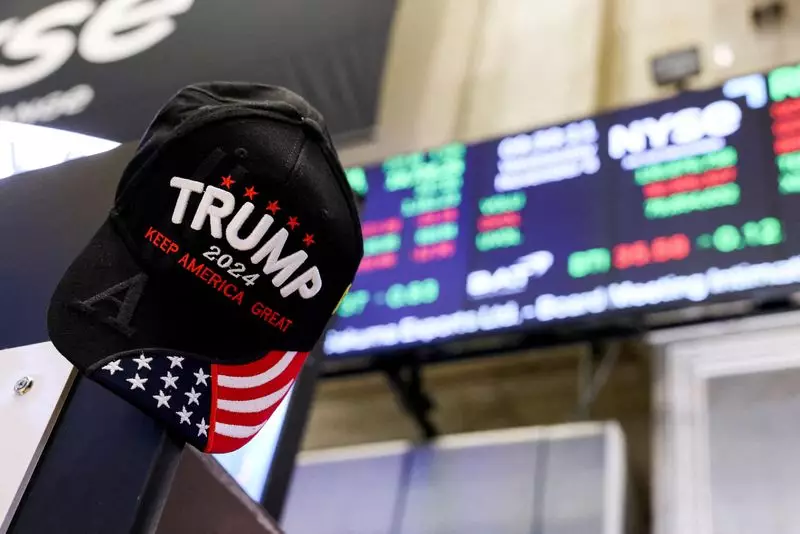On a day characterized by significant stock market movements, Wall Street’s primary indexes closed positively, marking yet another chapter of resilience among investors. The small-cap Russell 2000 index not only showcased its strength but also achieved an unprecedented all-time high. This surge in performance comes on the heels of Scott Bessent’s appointment as the new U.S. Treasury Secretary, a move that has calmed previously high bond yields. Amid this backdrop, discussions surrounding a potential ceasefire between Israel and Lebanon contributed to a decline in oil prices, further benefiting the overall market sentiment.
The financial community buzzed with speculation regarding Bessent’s nomination, especially after months of uncertainty. After President-elect Donald Trump finally revealed his choice late last Friday, investor anxiety about government borrowing resurfaced in conversation. Strategists largely view Bessent’s nomination as a potential moderating influence on fiscal policy which could inhibit reckless government borrowing. Indeed, market economist James Reilly emphasized that the focus has distinctly shifted toward tariff policies as a result of Bessent’s appointment, alleviating some of the concerns that plagued investors during the election cycle.
The immediate consequences of this political news were apparent in the day’s trading numbers. According to preliminary data, the S&P 500 saw an increment of 17.81 points (0.30%), closing at 5,987.15 points, while the Nasdaq Composite also made gains, rising 0.27% to reach 19,055.15. The Dow Jones Industrial Average jumped 439.02 points (0.99%), ending at 44,735.53. Simple metrics like the advancing-declining issue ratio, which showed a remarkable 3.01-to-1 in favor of advancing issues on the NYSE, painted a bright picture of market health.
While all eyes have been on large-cap stocks, the real stars of the day were small- and mid-cap stocks, both of which have been gaining traction for various reasons. The small-cap index touched an impressive intraday high of 2,466.49, surpassing its three-year-old record. Investors have sensed that changes in government policy under Trump’s administration might present new opportunities for these smaller businesses. Adam Sarhan, CEO of 50 Park Investments, hinted that the current market dynamics aren’t solely dictated by the political climate but are also influenced by the ongoing monetary policy adjustments by the Federal Reserve since September.
One notable shift in the market was observed in the Real Estate sector, buoyed by the recent drops in Treasury yields. As lower yields often translate to more affordable borrowing costs, this shift provided a favorable environment for real estate stocks, allowing the Housing index to rise significantly, by 4.5% on the day. This interplay between fiscal policy and market performance has become a central theme in discussions about potential future trends.
Despite the optimism pervading the markets, caution remains among investors. The possibility of inflationary pressures threatening the current ease in monetary policy looms large. The market now finds itself in a delicate balancing act as investor expectations oscillate between further rate cuts and potential pauses in the Federal Reserve’s monetary policy adjustments. The Fed’s December meeting awaits keen scrutiny, with indications suggesting a 56.2% higher probability for a subsequent rate cut.
Consumer Discretionary stocks have emerged as an area of notable strength, inspired by favorable movements in high-profile companies such as Amazon, which experienced a rise of 2.2%. This sector’s momentum comes amid upcoming reports, such as the Personal Consumption Expenditure, which can significantly sway investor sentiment as the holiday season approaches.
As companies continue releasing quarterly results, the complexities of the market are further illuminated. Recent announcements reveal mixed fortunes, with department store Macy’s suffering a setback after postponing its third-quarter results due to accounting challenges, while Bath & Body Works’ upbeat quarterly forecast highlighted pockets of strength.
Wall Street’s recent performance serves as a reminder of the vibrant interplay between political events and market dynamics. As the year winds down, the financial landscape will undoubtedly continue to evolve, prompting investors to remain attentive to emerging trends and economic indicators.

